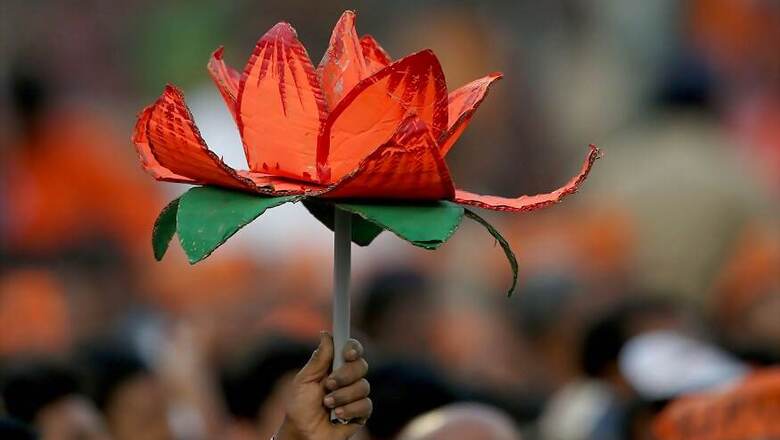
views
There can be two ways to interpret Assam education minister Himanta Biswa Sarma’s recent statement about converting the government-funded madrasas and Sanskrit tols into normal secondary schools.
One might trace the official status of the state madrasa board and the nature of state funding to religious institutions to evaluate the lawfulness of this statement. This kind of reasoning will eventually take us to the wider legal-constitutional questions such as right to education, and minorities’ rights, etc.
Alternately, we may read this comment as a strategic move to further polarise the Assam society in the name of secular education. Obviously, unlike Sanskrit tols, the well-established madrasa system of education is a visible marker of Muslim presence in the state. The proposed mainstreaming of madrasa education, therefore, could also be seen through the prism of BJP’s known unfavorable position on madrasas.
These possible inferences are certainly useful. However, there is a need to go beyond these given and ready-to-use explanations. One must pay attention to the ‘framework’ of BJP’s politics that produces such destabilising and overtly provocative moves or statements.
Framework of politics
This new framework of BJP politics has three intrinsic features. First of all, there is a conscious attempt to ‘fine-tune’ existing institutions. This is quite obvious because the BJP under Narendra Modi and Amit Shah has successfully established a discourse of Hindutva-driven nationalism. The party leaders often make a powerful plea that the existing institutional apparatus is anti-Hindu and therefore there is a need to fix it.
The BJP’s manifesto of the 2019 Lok Sabha elections is a good example in this regard. The document emphasises that the party would abrogate Article 370 and 35A of the Constitution and implement the Citizenship Amendment Bill 2016 (which later became the Citizenship Amendment Act 2019, or the CAA) after coming to power. This is precisely what it did. In a very short span of time, the BJP has managed to ‘settle’ the known Hindutva issues – Article 370/Article 35A, triple talaq and Ayodhya.
Appropriation of constitutionalism is the second feature of this political framework. The BJP – and for that matter the Rashtriya Swayamsevak Sangh – is not interested in formally declaring India a Hindu Rashtra. BJP leaders, including Narendra Modi, celebrate India’s constitution as a holy book of nationalism. This explicit adherence to constitutionalism is used by the party to legitimise the proposed restructuring of institutions.
Finally, this new framework of the BJP’s politics is more concerned about its committed Hindutva constituency in the post-Article 370/Ayodhya scenario. The Hindutva-driven citizenship issue is certainly going to be the main component of the BJP’s politics. However, the party has not been able to translate the CAA into an electoral theme.
The BJP’s recent defeat in the Delhi polls underlines this fact. Although the party managed to get a sizeable support from its committed voter in Delhi, it virtually failed to articulate an electorally winnable position.
Selective secularism
This new framework of the BJP’s politics faces two very specific challenges. First, it is not an easy task for the party to justify the proposed restructuring of institutions merely in the name of Constitution-worship. The Indian constitution is a complex document, which also sets out a very specific and overtly secular institutional design. The BJP has not been able to appropriate this secular imagination.
In such a context, the party is left with only one option – selective secularism. This is precisely what Himanta Biswa Sarma’s statement is all about. He invokes secular education to target the institutional existence of the Madrasa Board directly. In order to keep a ‘secular balance’, the Sanskrit tols are included in the list.
The second challenge is more profound. The BJP has not yet found a positive vocabulary of politics in the post-2019 period. It still relies heavily on an anti-Congress, anti-Pakistan, anti-Muslim, and anti-communist plank.
This negative campaign is becoming problematic. The BJP is in power for more than six years with full majority. This is also true about Narendra Modi. He was the chief minister of one of the most powerful states in India for three terms and this is his second stint as the prime minster of the country. It simply means that Hindutva/BJP/Modi victimhood is not marketable in the long run.
The CAA is the first serious, deliberate and structural move by the BJP to deal with this challenge. It is clear that the BJP is going to use the legislation as a ‘constructive point of departure’ to deal with a number of structural issues such as the vexed question of minority rights.
The Assam madrasa board, in this sense, can easily be identified as a problematic institution – primarily because of its minority status. The existence of such institutions could be used to make a politically viable argument that Muslims/minorities enjoy undue privileges in India while Hindus in Pakistan face religious persecution.
Himanta Biswa Sarma, it appears, is an intelligent politician. He has actually imbibed the BJP’s new framework of politics.
(The Author is Fellow, Nantes Institute for Advanced Study, France and Associate Professor, CSDS, New Delhi. Views Expressed are Personal)




















Comments
0 comment